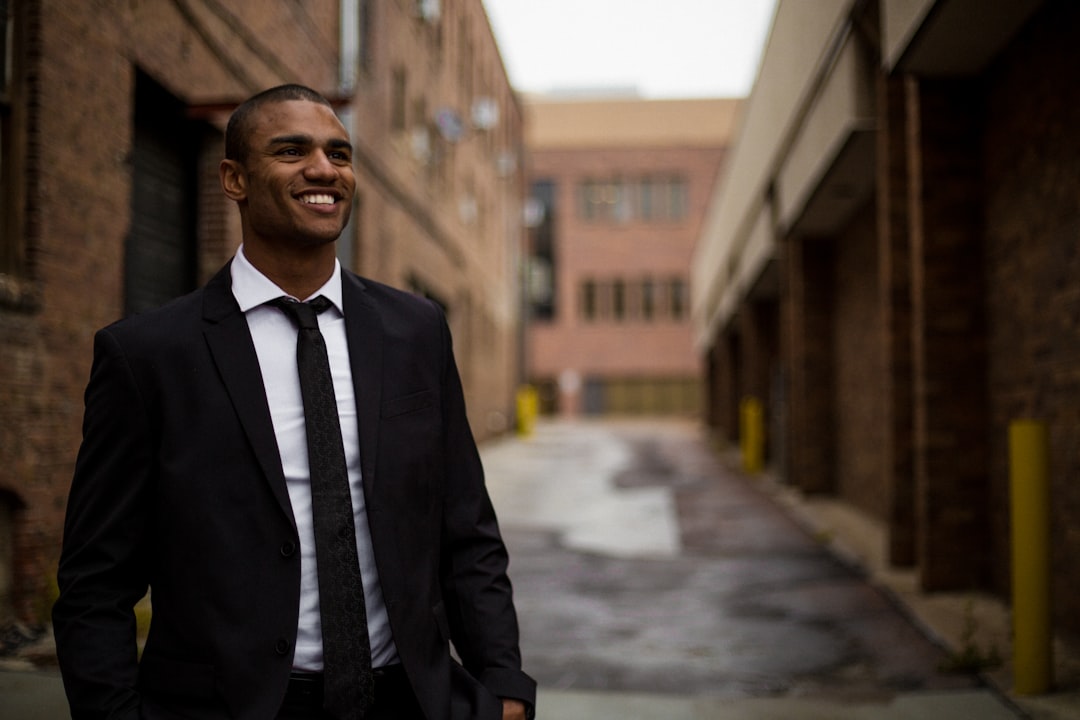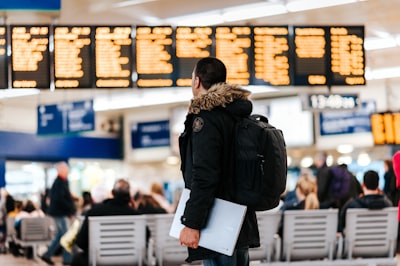Relocation story: “How I got a tier 2 job from outside the UK"
Every month, Maze brings you an interview segment that explores peoples’ relocation stories and highlights their experiences living and settling in the UK.
The subject of today’s interview, Ojay, moved to the UK on a tier 2 work visa to take on the position of an Assistant Manager at one of the “Big Four” companies nine months ago. He talks about his journey detailing how he got a coveted job offer and the challenges of relocating during a pandemic.
Photo by Taylor Grote on Unsplash
Why did you decide to move to the UK?
I came to the UK simply because I wanted to better life for myself. My home country felt limiting and I believed I could achieve more in another country. I considered the UK as one of the best places for me to gain international experience as an auditor.
My background is in accounting and I had accrued years of experience as a senior associate auditor at a “Big Four” accounting firm in Nigeria. Yet, I’ve always looked forward to being on the engagement team of the top companies in the world and I felt pursuing a career in the UK will give me the chance to chase that goal. Luckily, the opportunity to work in the audit division of a UK-based accounting firm came along.
Lastly, I came for the Premier league games. Now, I’m closer to the stadiums to see live matches.
How long have you lived in the UK?
I’ve been here for nine months. Prior to this, I’ve been in the UK on multiple visits for the summer holidays.
What was new and different about living in the UK compared to your home country?
A discernible difference is that I found myself in an environment that works. The organised society, political stability, the system where you get value for the taxes you pay and governance is a far cry from what’s obtainable in my home country.
What was the hardest part about your relocation?
3 main aspects.
The process and preparation I had to make before getting my visa were a bit tedious. For instance, securing an appointment to book a TB test - a mandatory criterion for my country- wasn’t in the least easy.
Moreover, the thought of getting accommodation got me stressed. I was particularly worried about the amount of time it would take me to sort my housing since my efforts to pre-book with agents proved abortive.
The third aspect was concerning my conviction about the career move. I had no idea what to expect in terms of my career, and I was unsure if I had made the right decision by moving. But now, I think the risk has paid off.
What was the cost of your move?
Considering the exchange rate, I would estimate the total cost at 2.3 million Naira (£4,200). A large chunk went to my immigration health surcharge (IHS), then other expenses included the TB test fees, visa fees, flight tickets, Covid test and the like. However, I was fully reimbursed for all relocation costs by my employer. My company also offered to cover the costs of shipping my belongings and furniture if I wanted.
What challenges did you face while settling in the UK?
I arrived in the UK at the peak of the pandemic, a period accommodation search was particularly difficult because of Covid restrictions. I had already spent 2 weeks in isolation leaving me with little less time to physically inspect apartments since most agencies didn’t allow virtual viewing. It took me around two weeks to find a place to live in the end.
Secondly - adapting to the weather and time zone messed up my sleeping pattern in the first few months.
So how long did it take you to adjust to life in the UK?
It took me 3 months to settle in properly. From getting accommodation, setting up the house, opening a bank account, completing paperwork and registering at the GP, it took me 3 months in all to settle in properly.
What was your biggest culture shock?
The binge-drinking culture.
The drinking culture here is taken seriously. You can imagine my surprise to find out that Beer is cheaper than water in some UK restaurants.
Also, I had a rather pleasant culture shock when my colleagues at work offered to help me set up Christmas decorations in my house last December. I was still relatively new in town and the gesture was unexpected.
How did you build a new friendship network in the early days?
I found this quite easy because I’m an extrovert and most British people are friendly. I don’t shy away from making conversations with random strangers at the restaurant or on the train. Besides, I quickly made friends among my colleagues and teams at work.
I’m still making new friends every day.
What are some of the things you wish you knew when you first moved?
How to build my credit rating. I discovered quickly that the UK is a credit-based system and you can’t get anything done without a good credit rating. If I had that information at the beginning, I would have applied for an AMEX card and put in a lot of direct debits to build my credit. The knowledge of how the credit system work is key information.
Your favourite part about living in the UK?
The best part is that the environment is relatively safe. I move around late in the night without fear from anyone. I hate to admit but I’m not used to that sense of security.
Secondly, the transportation system is very efficient which makes it easy to plan my trips and movement.
What was your experience getting a UK-sponsored job from abroad?
I applied directly through the company portal when I saw I had the minimum criteria required for the job. The essential document I needed to work in the UK was the certificate of sponsorship (COS) from my employer and I got that without a hassle as soon as my offer was confirmed. However, I would add that the recruitment process was paused for my some months because of Covid-19.
Once I had my COS, I was ready to apply for my tier 2 visa. Of course, I got additional documents like the TB test certificate, academic transcripts, and proof of English language knowledge from UK NARIC. Once I got my paperwork together, my employer assigned an immigration officer who guided me through the application process till I submitted it. My visa was approved in six working days, which is a record time for a standard application.
What advice do you have for other Newcomers?
Whether you’re coming for school or work, keep an open mind. You should research basic information about your move and try to connect with people already living abroad. Ask as many questions as you can, it will make your relocation easier.
Would you like to tell your moving abroad story? You can get a chance to be featured in our next Traveller Spotlight series - Drop your details here.
Maze provides an end-to-end platform that disrupts the traditional relocation model.
We connect people relocating with service providers, reduce cost and enable the personalization of customer journeys to the UK.
Follow us on Instagram, Twitter, Facebook and LinkedIn, or Contact us with your relocation enquiries.


